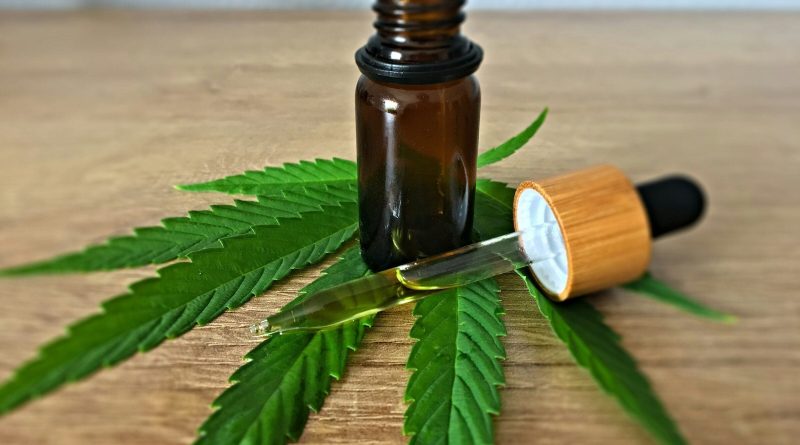CBD Is A ‘Promising’ Treatment In Skin Care, Including For Acne And Psoriasis, Scientific Review Shows
From toxifillers.com with love
Cannabidiol (CBD) shows promise for a range of applications in dermatology and cometic science, a new comprehensive review of medical literature on the marijuana component’s topical applications has concluded.
The paper, published in the journal Biomolecules, found that the non-intoxicating compound’s “anti-inflammatory, antioxidant, antibacterial, analgesic and anti-proliferative properties contribute to its therapeutic potential in managing inflammatory and immune-mediated skin disorders, as well as in promoting skin rejuvenation, hydration and protection against oxidative and environmental damage.”
The cannabis component also “shows promise in managing skin cancers (melanoma, squamous cell carcinoma, Kaposi sarcoma) and pigmentation disorders such as melasma and vitiligo,” it says.
Importantly, the authors added that “the existing evidence suggests that short-term use on human skin is generally well-tolerated, with no reports of allergic or irritating reactions.”
CBD “has emerged as a promising multifunctional agent in dermatology and cosmetic science.”
As research and innovation continue, “CBD may become a valuable and well-integrated active ingredient in dermatological and cosmetic therapies, as well as in emerging applications within oral health care,” they said.
Applications in post-procedure recovery, sensitive skin and men’s grooming are all areas worth further exploration, the paper says.
Existing evidence supports CBD’s “efficacy in managing acne, psoriasis (including scalp psoriasis), atopic and seborrheic dermatitis and allergic contact dermatitis,” the authors wrote.
The study noted the potential of these properties to have “moisturizing, anti-acne, wound-healing, skin protection and anti-aging effects” and that “topical and transdermal CBD formulations have attracted growing research interest due to their prospective therapeutic roles in dermatological conditions.”
The authors, affiliated with the George Emil Palade University of Medicine, Pharmacy, Science and Technology of Târgu Mureș in Romania, studied several scientific advancements in dermatological applications. They noted that “CBD exhibits different biological effects on the skin, mediated through its interaction with the endocannabinoid system and multiple molecular targets.”
But they warned that “although CBD exhibits promising therapeutic potential, the use of CBD in dermatology and cosmetics remains constrained by several factors” which include “suboptimal physicochemical characteristics, limited transdermal permeability, the absence of standardized formulations and variability in regulatory frameworks.” They added that “safety concerns and the need for more robust clinical evidence persist.”
Regulation also lags behind. The 2018 Farm Bill legalized hemp-derived CBD in the U.S. but the Food and Drug Administration (FDA) has yet to issue clear guidelines for skincare and cosmetic products. Most CBD products are not FDA approved and, as the authors note, there is scant reliable research into this emerging new dermatologic applications of CBD.
“Due to CBD’s lipophilic nature and poor water solubility, its effective topical and transdermal delivery remains a challenge, limiting its penetration beyond the skin surface,” the the authors observed.
Despite these limitations, they note that “CBD-based topical products are expected to benefit from advances in formulation science.” Novel delivery systems are now being developed to “enhance CBD’s skin penetration and stability,” the paper says, which could “overcome CBD’s lipophilicity and poor water solubility, ensuring more effective delivery to target skin layers.”
“It enhances skin rejuvenation by reducing oxidative stress and boosting collagen and hydration.”
“Innovative formulation technologies are crucial for unlocking the full potential of CBD in skincare…overcoming challenges related to solubility, stability, and skin penetration, advanced delivery systems and synergistic combinations yield more effective and targeted CBD products,” the study concluded. “Continued research will be essential to validate these innovations and ensure their safe, science-backed application.”
They also caution about “potentially misleading claims regarding” CBD’s therapeutic benefits. “There is an increasing need to investigate the clinical evidence supporting such claims by examining the current and emerging landscape of topical cannabis-based medicinal products.”
As to the need for more standardized studies, they authors write that “there remains a need for robust, large-scale clinical trials to validate the efficacy and safety of CBD in dermatological applications… Many commercial formulations lack standardization, and product labelling often fails to accurately reflect cannabinoid content or purity, leading to diminished consumer trust and increased regulatory concerns.”
“However, the CBD skincare sector offers numerous opportunities,” they noted. “Niche markets…present opportunities for targeted product development. CBD’s multifunctional properties, including anti-inflammatory, antioxidant, analgesic, and moisturizing effects make it an ideal candidate for addressing complex skin concerns in these specialized segments.”
Relatedly, a 2024 scientific literature review published in the journal Molecules explored the “collaborative interactions” of various chemical compounds in marijuana—including cannabinoids, terpenes and flavonoids—arguing that a better understanding of the components’ combined effects “is crucial for unraveling cannabis’s complete therapeutic potential.”


